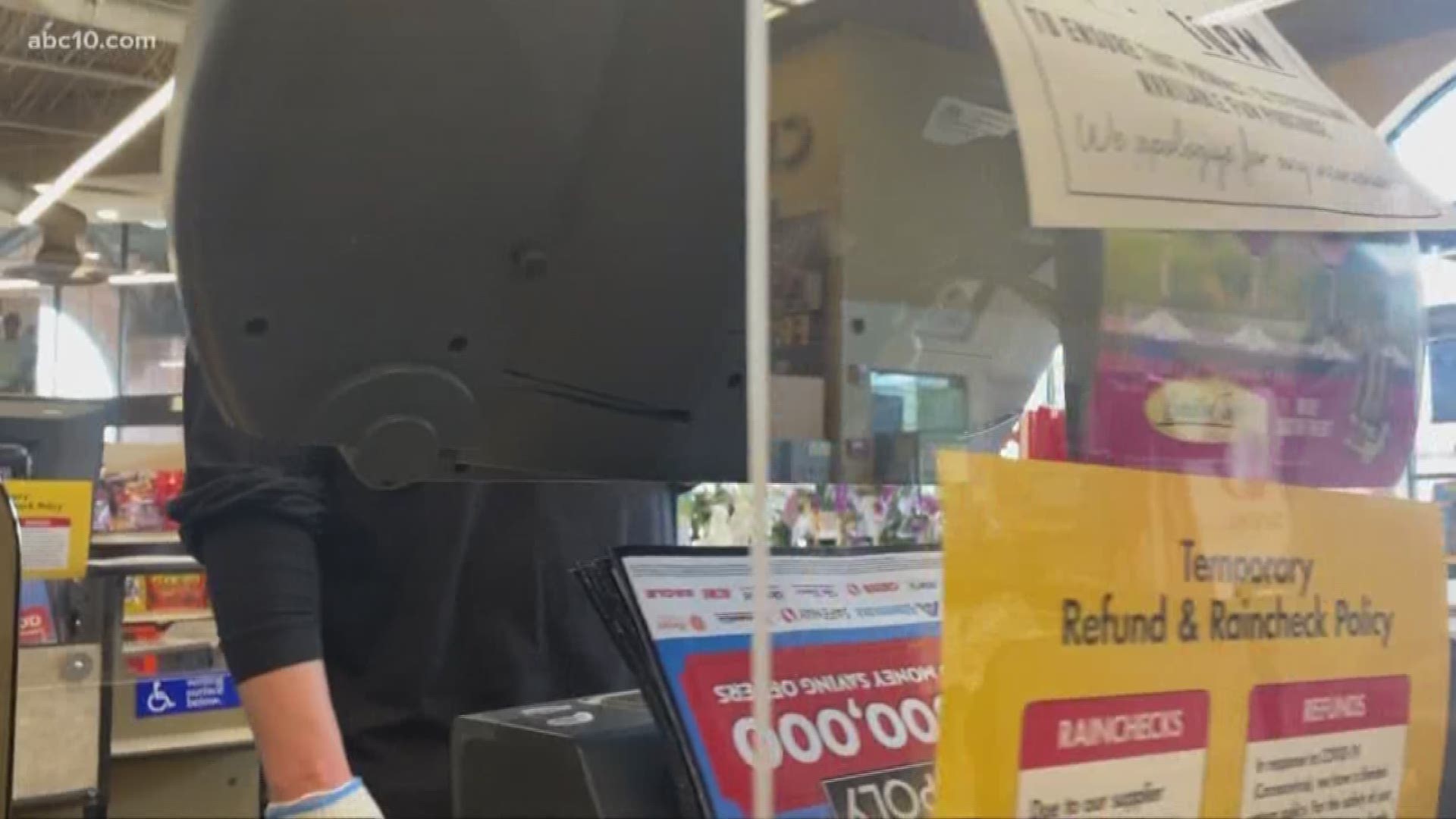SACRAMENTO, Calif — Neil Henderson has essentially stopped production on ski equipment at his Prospect Snow and Wake factory in Rocklin as many Northern California Ski Resorts closed due to the coronavirus pandemic.
Instead of looking at the possibility of temporally close his shop, Henderson decided to switch gears. He stopped production of snow gear and starting to manufacture plexiglass shields — the same ones used in grocery stores separating cashiers and customers.
"It was essential to switch over," Henderson said. He said it was a way to keep his business afloat and try to help fight the virus. "[The shields] are made from plexiglass, or clear plastic, and we have a few different sizes. They are about 36 inches high and they are meant to be put on the counter top."
Henderson said he should begin to fill orders by the end of the week.
The plexiglass shields are being installed between a customer and cashier at many grocery stores around the country, so that any airborne droplets possibly containing the virus would be blocked from hitting the person on the other side.
Walmart recently said it will start to install the sneeze guards in the next few weeks. Safeway stores have already started to install the shields at some of its stores.
But can the plexiglass shields actually help slow the spread of COVID-19?
Dr. Tom Hopkins with Sutter Health Roseville said even if the shield does help protect, you still can't let your guard down.
"It's something. It's a barrier between a person who could potentially have COVID-19 or any germs," Hopkins said. "You still have to pay attention to social distancing. Hand washing and sanitize your environment.
"Those things you still have to do. So, these [sneeze shields] things offer some peace of mind but they are not the only thing that needs to be done."
Coronavirus Background
According to the CDC, coronavirus (COVID-19) is a family of viruses that is spreadable from person to person. Coronavirus is believed to have been first detected in a seafood market in Wuhan, China, in December 2019. If someone is sick with coronavirus, the symptoms they may show include mild to severe respiratory illness, cough, and difficulty breathing.
Currently, there is no vaccine; however, the CDC suggests the following precautions, along with any other respiratory illness:
- Avoid close contact with people who are sick.
- Avoid touching your eyes, nose, and mouth.
- Stay home when you are sick.
- Cover your cough or sneeze with a tissue, then throw the tissue in the trash.
- Clean and disinfect frequently touched objects and surfaces using a regular household cleaning spray or wipe.
- Wash your hands with soap and water for a minimum of 20 seconds.
WHY HEALTH OFFICIALS ARE SO CONCERNED
Some people have compared the low overall death toll to the flu's high annual death toll in the United States as a reason not to be concerned about COVID-19, however, doctors and health officials are concerned for three main reasons:
- Some people have built up immunity to the flu, but few have immunity to COVID-19 version of coronavirus.
- Both the flu and COVID-19 are spread by droplets, but COVID-19 might be spread in the air. Scientists are researching exactly how COVID-19 spreads.
Follow the conversation on Facebook with Mayde Gomez.
LEARN MORE ABOUT THE STIMULUS PACKAGE:
FOR NEWS IN YOUR COMMUNITY, DOWNLOAD THE ABC10 APP:
►Stay In the Know! Sign up now for ABC10's Daily Blend Newsletter



